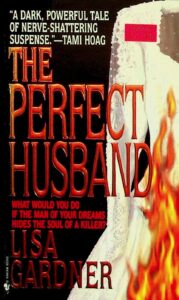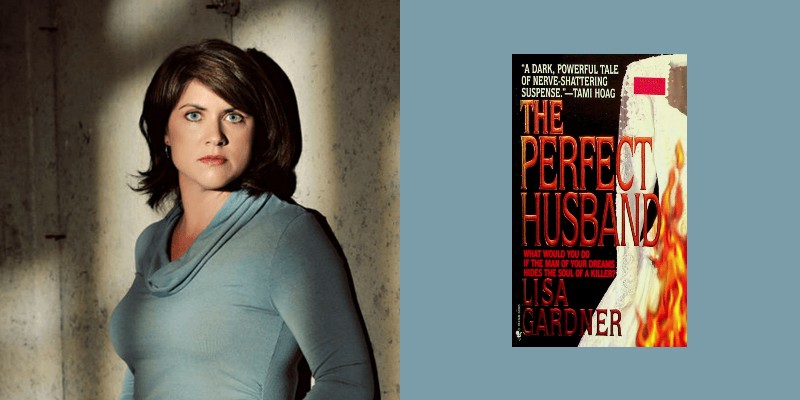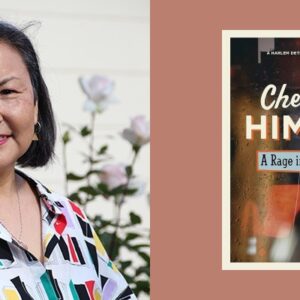When asked what it was like to publish her first novel, bestselling author Lisa Gardner immediately replies, “Which time?”
After all, Gardner started her career at seventeen, writing category romances before breaking out big ten years later with her first thriller—the career her publishers prefer her to highlight.
“I met Tess Gerritsen when my debut thriller The Perfect Husband was launched. I remember her laughing and telling me in her experience, suspense publishers would prefer it if the romance books never happened. ‘Only in publishing,’ Gerritsen said, ‘can you become a virgin again.’”
So, how did Gardner sell her first, first book?
“I was 17 and didn’t know any better,” says the bestselling author. “I wanted to see if I could write a book, and low and behold, I did.”
But the idea of publishing her romance novel didn’t cross her mind. Finishing it was enough. Yet her friends in her dorm at the University of Pennsylvania urged her to publish. She sent it to Harlequin, and the editor who reviewed it happened to be an alumna.
“It made her curious, which is why she pulled mine from the slush pile…Then I spent two years waiting for someone to read it.”
Finally, Gardner received a 20-page, single-spaced revision letter outlining everything she needed to change, “which actually was good. That’s how I learned to write.”
“I had dreams I’d sell my first novel and buy a Mercedes,” Gardner says. “I sold my first novel and could only afford a new computer.”
“I published my first novel and learned a lot. They didn’t pay you much,” she says. The reason, she explains, is she was writing stories in a small category of the much larger romance genre.
Her publisher encouraged her to use the pseudonym Alicia Scott, which Gardner later learned wasn’t a good idea. “They owned the pseudonym…Ignorance is bliss, but that’s a double-edged sword. I didn’t know how daunting this would be…I probably should have talked to a lawyer.”
At her father’s urging, after graduation from Penn, she went on the career hunt circuit. “I got a job my father approved of. A cubicle, benefits, panty hose—all the comforts of a business life.”
She worked a twelve-hour day at her benefits/panty hose corporate consulting job and then wrote late in the evening and into the next morning.
“Within two years I realized I hated it. What I wanted to be when I grew up was a full-time novelist. So, then I got serious.”
She first joined a writer’s group—the New England Chapter of Romance Writers of America. Up to this point, she didn’t know a single novelist. She immediately began picking their brains. “Why don’t you have an agent?” many asked. “You took a pen name, and do you know they own that? That was really stupid of you.”
As she continued to write romance in her spare time, she began to understand she could never make a living in her genre. “I’d have to write five books a year…So, as I make these revelations, I understand I really need an agent. I really have a business problem. I really don’t know how to make a living at this.”
“That’s how I started my publishing education.”
“A few of my fellow authors helped me get an agent.” Several knew Damaris Rowland, who was previously an editor at Dell and was looking to become an agent and build a list of authors. When you’re looking, Gardner says, “find an agent with no clients.”
Rowland read her romance novels and said her sex scenes were okay, “but your violence is exquisite. You need to write thrillers.”
At the time, Tess Gerritsen had just sold Harvest and romance authors Sandra Brown and Nora Roberts were moving into thrillers.
“Like any good agent, mine saw a path and asked why I wasn’t writing thrillers?”
At first, Gardner worried about the research that would go into such a novel. “Then I realized I was a research analyst. Research is research…I made the mental leap.” But she hedged her bets and decided to write romantic suspense. “I didn’t know it, but I would write a domestic thriller. That was less of a stretch than a hard-boiled detective.”
She decided she’d have to quit her consulting gig and work full-time at writing if she were going to write a thriller. “In every career, you reach a moment when you have to take a leap of faith.” But there was a catch. She was under contract with Harlequin’s Silhouette Intimate Moments to write five more category romances.
She’d give herself a year. “I’d saved money and I was getting paid for these romance novels, but it was lean. I counted my pennies every week.”
Fortunately for her, both parents were accountants and had taught her cashflow. But even cashflow has its limitations. If there’s no cash, there’s no flow.
She labored on her novels, working mornings on her contract romances and afternoons on her thriller. To pay her rent she eventually became a part-time customer service rep for a cellular phone company. “This is the only time in my career I’ve ever written multiple books at the same time and I don’t know how I did it…It was crazy.”
She finally turned in her thriller manuscript and her agent told her it was good enough and conducted what Gardner describes as a “modest” three-day auction. Bantam stroked a check, and her advance was “three times larger than what I’d made on all of my romance novels.”
Soon, she received what she describes as a “two-day phone call” from her new editor. Gardner equates it to the 20-page revision letter she received for her first romance novel. “She totally ripped my novel apart.” Characters were changed, new plot-lines added, and a lot of material eliminated. The book needed to be bigger, her editor told her.
“It was a challenging time. It felt like whatever I did, that it wasn’t good enough …I ate a lot of brownies, and soon I got a lot bigger during this time.”
When completed, Bantam wanted to title it “Redemption” and created a cover that de Guzman complained was just plain awful. After all of her work, Gardner realized her novel was not being packaged for success.
“I’m beginning to believe my father was right. That job with benefits was looking really good right now.”
Then one of the sales directors at Bantam read her manuscript. “This is really good,” she said. “We can sell this, but you have to give it a new cover and title.”
The Perfect Husband emerged, and the cover of a burning wedding gown quickly appeared. The cover was so good, the New York Times wrote about it—not Gardner, she laughs, but the book jacket. “That cover, with the embossed flames, is still considered iconic in the industry. So, I guess that’s one of the secrets to success—get a really gorgeous cover!”
“All of a sudden they are printing hundreds of thousands of copies,” Gardner says. “It was wild. Yep, a mere decade later I’d become an overnight success!”
The year the Perfect Husband was published is the same year Gardner got married. “A lot of people said, ‘Oh, he must be the perfect husband.’ Given that the perfect husband was a serial killer, it wasn’t the perfect compliment.”
Gardner says she learned a lot about making a living in publishing during her tenure with romance novels and later her shift into bigger thrillers. “I think romance novels teach you how to write about character.”
To be successful in this business, she says, “you need to accept you’re a small business owner. You need to know marketing and that all roads eventually lead back to the author. If you’re not ready to wear all of those hats, this will be a frustrating business for you.”

___________________________________
The Perfect Husband
___________________________________
Start to Finish: 3 years
I want to be a writer: 6
Decided to write a novel: 17
Experience: romance novels, research analyst
Agents Contacted: one, friends helped
Agent Rejections: 0
First Novel Agent: Damaris Rowland
First Thriller Novel Editor: Beth de Guzman
First Novel Publisher: Bantam
Age when published: 20 first romance novel, 27 first thriller
Inspiration: A big source was my 104-year-old grandmother. She worked hard and was an English teacher.
Website: LisaGardner.com
Advice to Writers: Read and write a lot of different things. Play around. It’s how you find your voice. There’s a lot of value in me in starting in romance. It enabled my career to explode when it came to thrillers. People stay too much in their lane these days.
Like this? Read the chapters on Lee Child, Michael Connelly, Tess Gerritsen, Steve Berry, David Morrell, Gayle Lynds, Scott Turow, Lawrence Block, Randy Wayne White, Walter Mosley, Tom Straw. Michael Koryta, Harlan Coben, Jenny Milchman, James Grady, David Corbett. Robert Dugoni, David Baldacci, Steven James, Laura Lippman, Karen Dionne, Jon Land, S.A. Cosby, Diana Gabaldon, Tosca Lee, D.P. Lyle, James Patterson, Jeneva Rose, Jeffery Deaver, Joseph Finder, and Patricia Cornwell.

















